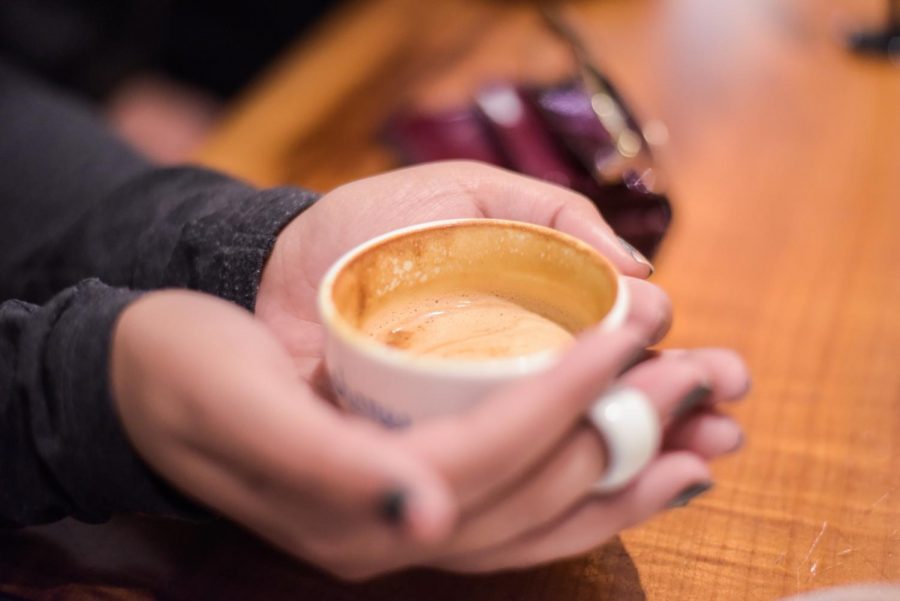Eighty-five percent of Americans report daily caffeine consumption, averaging 165 mg a day. For comparison, the average Starbucks drink is around 130 mg, and the average amount of caffeine consumed by a college student is around 150 mg. I think it is safe to say that we like our lattes. That number gets even larger when you compare it to alcohol, of which only around 70 percent of Americans report drinking in the last month. Many see coffee as an integral part of their morning routine, as a social vessel or as something they enjoy drinking, but many fail to acknowledge coffee’s addictive qualities. Most people know about caffeine’s energy boosting effects, but many do not know about its physiological or neurological effects.
Caffeine is more than just an ingredient in coffee, chocolate, soda, energy drinks and tea. It is a natural pesticide produced by dozens of plants, including the Coffea arabica, which is the plant most commonly used to make coffee. Caffeine also acts as a psychoactive drug for animals large enough to resist its pestilent effects. Specifically, it’s a stimulant, a category of drugs that speed up the body’s functions. The way caffeine modifies your body’s functions dictates its effects, and given the complexity and diversity of human physiology, the symptoms can vary across individuals. Nevertheless, there are verified effects that caffeine elicits.
Caffeine also increases alertness and reduces fatigue, which helps explain why people refer to coffee as the “morning drug”. An article written by Andrew Smith from Cardiff University explains that, “Most people are very good at controlling their caffeine consumption to maximize the positive effects.” This is great, but some people should take precaution in their caffeine consumption.
An article from the 1980s suggests that introverts were generally shown to be hindered by drinking coffee in the morning and the opposite was found with extraverts. Introverts aren’t the only group affected; anxious, depressed and generally neurotic people are at particular risk for drinking coffee. An experiment shows, “Caffeine was found to increase anxiety, depression, and hostility,” though the study does acknowledge that it wasn’t possible to determine causation or direction of effect, with more research needed. However, those individuals affected by anxiety disorders should be cautious with their caffeine usage to avoid exacerbating their anxiety.
If you do plan to go caffeine-free for some amount of time, know that there are withdrawal symptoms. Headaches, nausea, irritability, lethargy and fatigue are all possible for approximately three to five days following the cessation of caffeine. These effects can get pretty unpleasant and can occur even if you only consume 100 mg of caffeine daily, which is well below the average. Gradually decreasing your caffeine dosage over some time instead of a sudden stop can minimize the withdrawal.
For most people, caffeine is fine as long as it’s consumed in moderate amounts. But if you are one of those that have trouble sleeping, or are highly anxious, stressed or depressed, maybe reevaluate your morning beverage. I love coffee. I drink it all the time, and I do not plan to give it up anytime soon, but I do question the “Don’t talk to me until I’ve had my coffee” mindset. Not just for its rudeness, but for its dependent attitude. What if one day you were not able to get coffee? Maybe your machine broke, the local cafe is closed or you just do not have time. What happens then? You’ll probably get a headache.
Ben Connolly can be reached at [email protected].



















